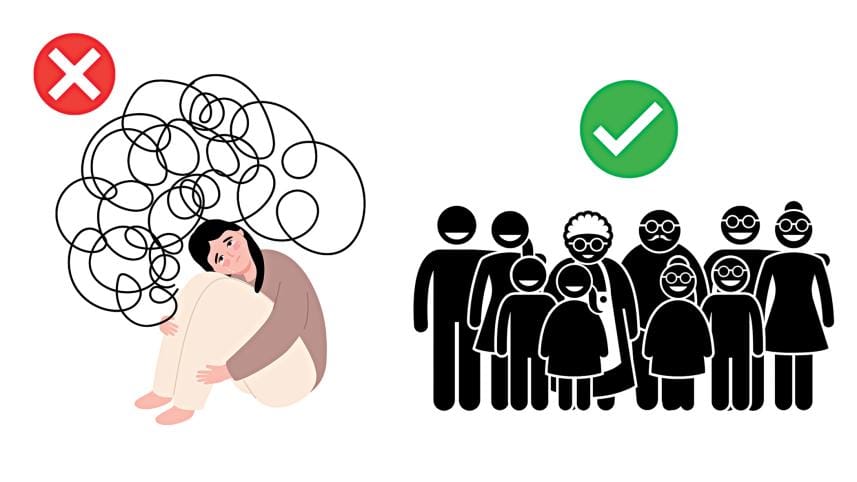It’s time to rethink what we believe

For generations, we have inherited health advice packaged as universal truth—some passed down by elders, others stemming from outdated science or popular culture. Phrases like "Avoid salt completely," "Never skip meals," or "Eight hours of sleep is enough—no matter when," are repeated so often that they sound unchallengeable.
But truth evolves—and so should our understanding of health. Modern research shows that many of these long-standing beliefs are not only outdated, but potentially misleading or harmful. Yet, these myths persist in our homes, schools, and even clinics. In a country where non-communicable diseases like diabetes and heart disease are on the rise, misinformation can have serious consequences.
Salt: A necessary nutrient, not a villain
Salt has long been portrayed as the enemy of heart health. However, newer studies—including those published in The Journal of the American Medical Association (JAMA)—challenge this narrative. For healthy adults, a moderate sodium intake of 3 to 6 grams per day is both safe and essential.
Consuming less than 3 grams daily may actually increase insulin resistance, heightening the risk of developing type 2 diabetes. When sodium levels fall too low, the body compensates by retaining sodium through the kidneys, disrupting fluid and electrolyte balance. Ironically, this can cause more harm than good. The lesson? Balance, not avoidance, is key.
Fasting: Misunderstood, not misguided
Intermittent fasting is often misunderstood and feared, especially due to the myth that it causes insulin resistance. However, it is not fasting itself but chronic undernutrition that harms metabolic health.
Insulin resistance can result from prolonged calorie restriction below one's Basal Metabolic Rate (BMR)—roughly 1100–1400 kcal/day for Bangladeshi women and 1400–1800 kcal/day for men. When the body is starved of energy, it slows metabolism and breaks down muscle mass, increasing the risk of dysfunction.
When done properly—ensuring adequate nutrients and caloric intake—fasting can support healing, weight control, and hormonal balance. The key is avoiding starvation disguised as discipline.
Sleep: More than just eight hours
The old rule of "eight hours of sleep" is not wrong—but it's incomplete. Research from Sleep journal suggests that sleep timing is as crucial as duration. The body's repair and hormonal cycles are most active between 9 PM and 2 AM. Regularly missing this window can disrupt melatonin production, impair metabolism, and increase insulin resistance.
Just one week of poor or late-night sleep can increase insulin resistance by up to 30%. Over time, this raises the risk of obesity, diabetes, and heart disease. Sleeping from 3 AM to 11 AM is not equivalent to sleeping from 10 PM to 6 AM—our bodies follow circadian rhythms, not just clocks.
Towards a smarter understanding of health
In today's hyper-connected world, health advice comes from everywhere—TikTok, group chats, and well-meaning friends. But not all advice is equal. As science advances, so must our health practices—based on evidence, not inherited beliefs.
Health is not about fear or fads; it's about understanding. By replacing myths with facts, we empower individuals and communities alike—laying the foundation for a healthier, more informed nation.
The writer is the founder & CEO of Nutrition For Change. E-mail: raisameh20@gmail.com




 For all latest news, follow The Daily Star's Google News channel.
For all latest news, follow The Daily Star's Google News channel.
Comments